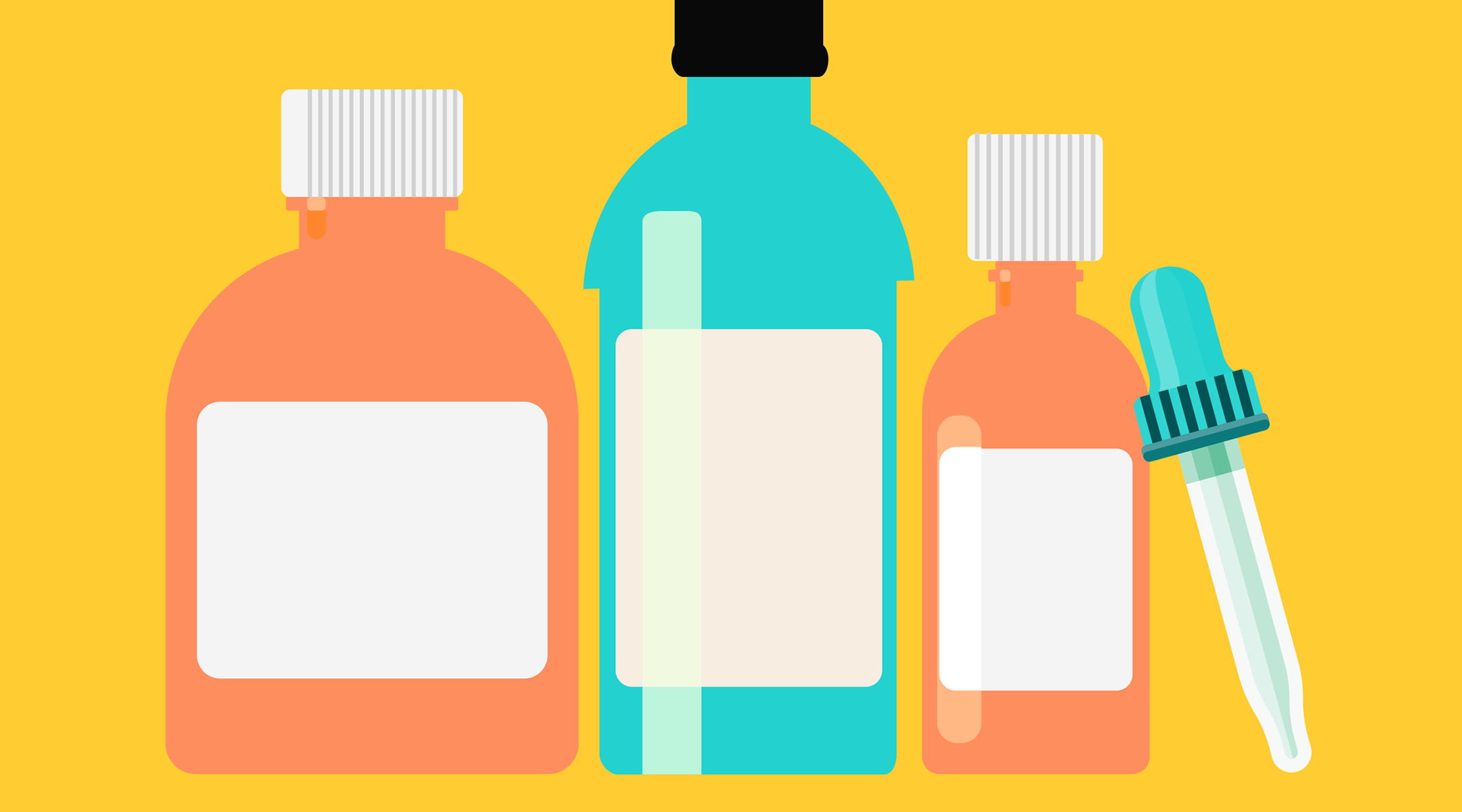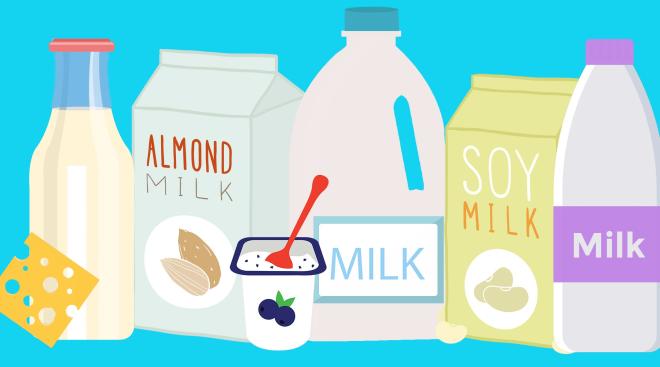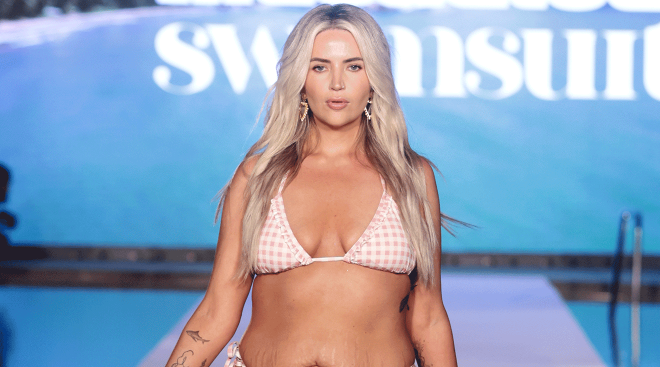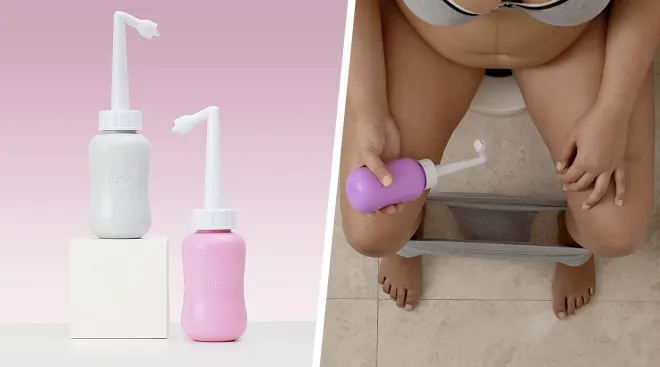What You Need to Know About Baby Vitamins
If you’ve walked the vitamins aisle at your local pharmacy, you’ve probably noticed a whole bunch of products labeled as vitamins for babies. Naturally, you want the best for your child—so should you be adding supplements to your shopping list? Read on to find out if baby vitamins are really necessary for your little one.
Breast milk and formula contain nearly all the nutrients your little one needs for the first months of life, but some infants may require baby vitamins to fill in the gaps. For example, “premature babies will often need multivitamins in addition to the formula or breast milk that they’re drinking,” says Molly Broder, MD, a pediatrician at The Children’s Hospital at Montefiore in New York City. “They don’t have as much time to build up their stores in utero, so they need the extra supplementation during their first year of life.” Doctors may also recommend vitamins for babies who are exclusively breastfed or have some types of gastrointestinal disease, cystic fibrosis or certain other illnesses that often require supplements, says Amalia Guardiola, MD, a pediatrician with UT Physicians, a part of UTHealth at McGovern Medical School.
So what are the most commonly prescribed vitamins for babies? Keep scrolling to learn which supplements are often recommended and under what circumstances babies might benefit from them.
But before you head to the drugstore to purchase a bottle of baby vitamins, talk with your pediatrician. Vitamins (as well as probiotics, minerals and other supplements) are regulated by the FDA as dietary supplements. That means manufacturers are responsible for testing their products, but federal law doesn’t require proof that baby vitamins and supplements are effective—or even safe—before they hit store shelves.
“Certain vitamins may actually be dangerous for babies, depending on the specific vitamin or supplement, or the amount of the dose,” says Stan Spinner, MD, chief medical officer and vice president at Texas Children’s Pediatrics and Texas Children’s Urgent Care. That’s why it’s always smart to check in with your child’s doctor and also look out for marketing red flags when shopping. These include products that claim to be a cure-all or “totally safe,” as well as those that lure shoppers to purchase them by offering no-risk, money-back guarantees.
Now that you know more about whether or not your child might require supplements, read on to learn about some of the most common baby vitamins on the market.
Vitamin K
The most widely recommended baby vitamin is vitamin K for newborns. This vitamin—which we get from foods we eat—helps form clots and stop bleeding. Babies are born with dangerously low levels of vitamin K. To boost their stores, hospital doctors will administer a single vitamin K shot, which is injected into baby’s thigh muscle, within six hours of birth.
Vitamin D
Doctors often recommend vitamin D for babies, which is important for their bone and brain development—although not all infants need the supplement. There are two factors that influence whether babies should be given vitamin D. The first is your child’s source of food. While formula contains sufficient amounts of vitamin D, babies who are exclusively breastfed or drink less than 32 ounces of formula should be given the vitamin. “There’s generally not enough vitamin D in breast milk to meet a baby’s needs,” says Eric Ball, MD, a pediatrician at CHOC Children’s in Orange, California. “Adults obtain a large proportion of their vitamin D from sunlight—our skin can manufacture the vitamin when exposed to the sun. Babies, however, shouldn’t be exposed to direct sunlight and therefore need an external source of vitamin D.”
The second factor is whether baby was born premature. “Vitamin D is transferred from Mom to baby through the placenta,” says Clare Bush Addis, MD, a pediatrician with ColumbiaDoctors in New York City. “Premature infants don’t have as much time to accumulate it, so they need a supplement.”
If baby does need to supplement with vitamin D for infants, doctors recommend giving babies 400 IU of vitamin D daily. “There are a variety of products that can be used to meet this need,” says Kristen Slack, MD, a pediatrician at Children’s Hospital of Philadelphia. “This includes concentrated droplets, which can be applied to mom’s nipple right before feeding, and a solution that can be syringed into baby’s mouth or bottle any time of day.”
One to try: Baby Ddrops Liquid Vitamin D3, $14, Amazon.com
Iron
An iron deficiency can lead to slow weight gain, pale skin, a lack of appetite and irritability. Babies acquire iron from the mother’s blood while they’re in the womb, but doctors may suggest iron supplements for babies born prematurely who didn’t accumulate enough iron before birth. Don’t be surprised if baby tries to spit out the supplement—they don’t always taste great. “Parents can try searching for a product that contains iron polysaccharide, which is a sweeter (though typically more expensive) version,” Slack suggests.
Full-term babies who are breastfed may also need iron supplements around 4 months of age, since their fetal stores can start to run low. At this point, Slack recommends switching from a plain vitamin D supplement to a multivitamin containing both iron and vitamin D, which they can take until they’re getting enough iron through solid foods (usually around 12 months of age).
One to try: Enfamil Poly-Vi-Sol with Iron, $8, Amazon.com
Baby probiotics
There are differing opinions on the use of probiotics for babies, and the benefits of infant probiotics are still being studied. While results are mixed (a 2018 study even suggests baby probiotics may be associated with increased infection later in life), Ball says there’s some evidence probiotics may be beneficial if:
· Baby has diarrhea. “Probiotics may help if a child has acute diarrhea or diarrhea caused by antibiotic use,” says Guardiola.
· Baby has colic. Babies with colic may also benefit from probiotics, as there’s some evidence that it can help ease fussiness.
There are several kinds of probiotics available that contain different types of bacteria, but Ball says to look for a baby probiotic with Lactobacillus reuteri (L. reuteri), which is the type used in most studies. But know that not every baby with the above conditions will benefit from infant probiotics. Keep an eye on how your child responds and stop giving the supplement if there’s no improvement.
One to try: Gerber Soothe Probiotic Colic Drops, $16, Amazon.com
Other baby vitamins
Every baby’s needs are different, so talk with your pediatrician before offering your child infant vitamins. Your doctor may recommend additional supplements, such as fluoride (depending on your water supply) and B12 (if Mom breastfeeds and eats a vegan diet).
Keep in mind that once baby moves onto eating solid food, you’ll need to reevaluate whether those baby vitamins are still necessary. Most babies stop taking vitamin D and iron supplements by their first birthday, says Addis. After all, once they’re eating fruits, veggies, dairy and protein, children should be getting the vast majority of the vitamins and minerals that will help them grow through their food.
Published June 2019
Please note: The Bump and the materials and information it contains are not intended to, and do not constitute, medical or other health advice or diagnosis and should not be used as such. You should always consult with a qualified physician or health professional about your specific circumstances.
Plus, more from The Bump:
Navigate forward to interact with the calendar and select a date. Press the question mark key to get the keyboard shortcuts for changing dates.




















































